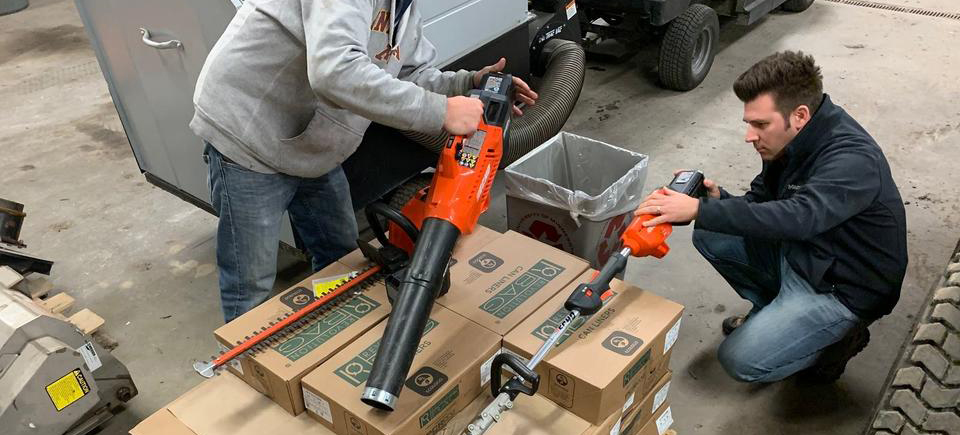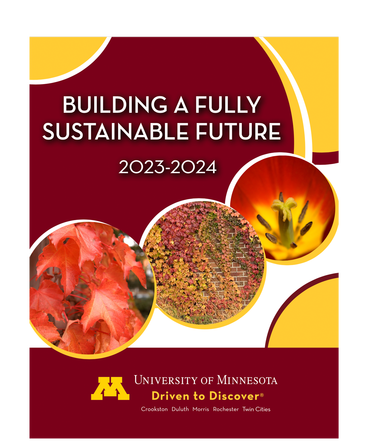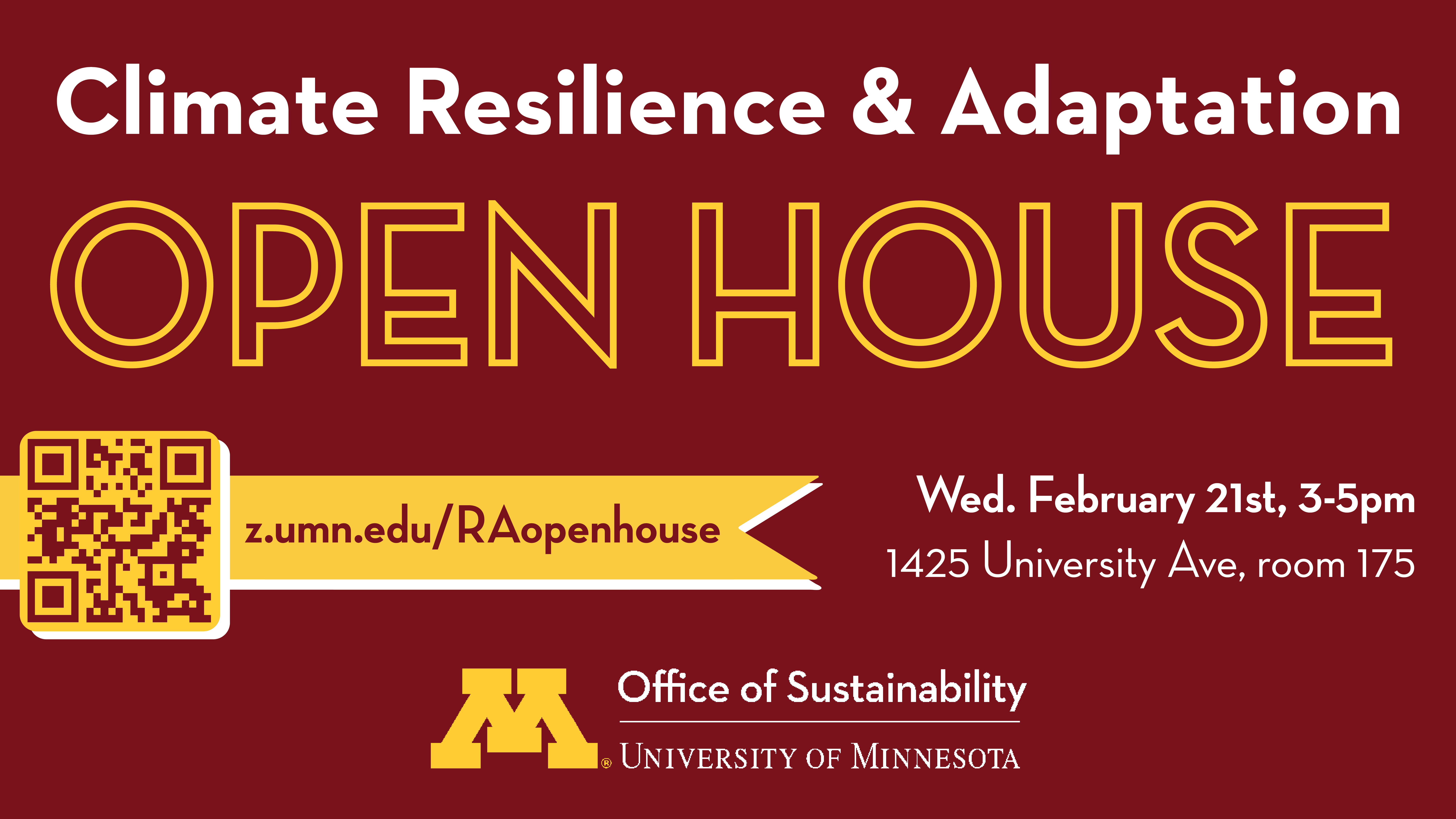
Did you know that “the amount of carbon monoxide emitted from a typical leaf blower for just 1 hour is equal to CO coming from the tailpipe of an automobile operating for over 8 hours, and for other pollutants, the amounts are even greater?” The time to switch from gas to electric lawn equipment is now, and that’s exactly what University of Minnesota landcare did. With a grant from the Minnesota Pollution Control Agency (MPCA), the landcare department was able to make a switch from gas to electric by purchasing seven battery-powered machines. The grant covered 50% of the cost of the new Echo Brand equipment including two handheld blowers, two weed whips, two stick trimmers, and one handheld hedge trimmer. Switching to electric machines is not only good for the environment, but it also makes work easier for landcare.
Josh Adkins, a landcare worker for the University, spoke about the changes, saying there’s a common misconception that battery-powered machines are less powerful and less efficient than gas due to the battery, however, he finds that not to be the case. Josh says that since switching to electric equipment, his job has been much more efficient. Gas equipment requires oil and gas to run which in turn requires carrying around extra materials. It then takes time to mix the oils, fill the gas tank, and pull an ignition cord which can be difficult with older machines; for the new battery powered equipment, the only step necessary is to insert the electric battery and flip a switch.
Electric lawn and garden equipment has other benefits as well. For starters, it’s often lighter than gas powered equipment making the machine easier to maneuver, which in turn gets the job done faster, according to Adkins. The benefits of battery-powered appliances for the equipment operator and passersby are also great as there are no harsh chemicals and noise is reduced substantially. Reduction of noise pollution is a major benefit for not only landcare staff, but for everyone at the university. Many modern leaf blowers exceed 70 decibels from 50 feet away, and the operator could experience 100-115 decibels or higher from one gas-powered leaf blower. Putting that into perspective, jet engines range from 120-140 decibels and anything over 85 is considered unsafe for humans. Elliot Redmann, the Landcare Supervisor, says some areas of campus are sensitive to the loud noise of a gas-powered machine. He uses the example of yard work around residence halls, “our work starts as early as 7 am, and if we can’t start around a Res Hall until nine because the machines are too loud, it can cut down on our efficiency.” Not only this, but if yard work is happening outside a classroom, office space, or even just as someone’s trying to enjoy their walk to class, the noise pollution is not ideal. Redmann also mentions that some areas of campus have air intakes that pump outside air into buildings. When machines are used in one of these areas, the fumes go into the air intakes and the building can smell like engine exhaust. With the help of the new machinery, landcare does not have these limitations.
The seven new machines are a stepping stone to replacing more of landcare’s gas equipment. Redmann says “within landcare we have five to six hundred pieces of equipment and within that there is regular turnover. For opportunities to replace gas with electric, we will take them.”
Apart from switching from gas to electric equipment, landcare implements daily sustainable practices into the way they manage campus grounds. Some of these include taking into account weather conditions and evaporation when it comes to programming of automatic sprinkler systems; and planting low maintenance turf grass to reduce mowing, fertilizer, water use, and upkeep of certain areas on campus. University of Minnesota landcare does their part in taking steps to be more sustainable on campus, and these steps add up to a more sustainable campus environment.
If you are interested in learning more about the University of Minnesota’s landcare department, check out their social media- on Instagram @umnlandcare and Twitter @UMNLandcare. They are also hiring students! Apply on their website https://facilities.umn.edu/fm-teams/landcare
1 https://www.dec.ny.gov/chemical/109428.html
2https://myhealth.alberta.ca/Health/Pages/conditions.aspx?hwid=tf4173



